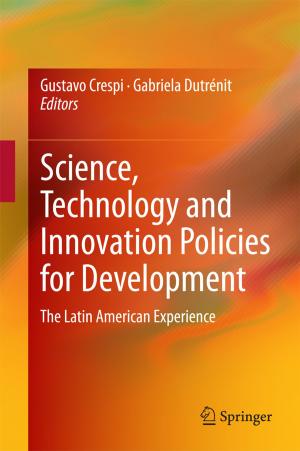Tourism in the City
Towards an Integrative Agenda on Urban Tourism
Business & Finance, Economics, Urban & Regional, Industries & Professions, Hospitality, Tourism & Travel| Author: | ISBN: | 9783319268774 | |
| Publisher: | Springer International Publishing | Publication: | August 29, 2016 |
| Imprint: | Springer | Language: | English |
| Author: | |
| ISBN: | 9783319268774 |
| Publisher: | Springer International Publishing |
| Publication: | August 29, 2016 |
| Imprint: | Springer |
| Language: | English |
This book critically explores the interconnections between tourism and the contemporary city from a policy-oriented standpoint, combining tourism perspectives with discussion of urban models, issues, and challenges. Research-based analyses addressing managerial issues and evaluating policy implications are described, and a comprehensive set of case studies is presented to demonstrate practices and policies in various urban contexts. A key message is that tourism policies should be conceived as integrated urban policies that promote tourism performance as a means of fostering urban quality and the well-being of local communities, e.g., in terms of quality spaces, employment, accessibility, innovation, and learning opportunities. In addition to highlighting the significance of urban tourism in relation to key urban challenges, the book reflects on the risks and tensions associated with its development, including the rise of anti-tourism movements as a reaction to touristification, cultural commodification, and gentrification. Attention is drawn to asymmetries in the costs and benefits of the city tourism phenomenon, and the supposedly unavoidable trade-off between the interests of residents and tourists is critically questioned.
This book critically explores the interconnections between tourism and the contemporary city from a policy-oriented standpoint, combining tourism perspectives with discussion of urban models, issues, and challenges. Research-based analyses addressing managerial issues and evaluating policy implications are described, and a comprehensive set of case studies is presented to demonstrate practices and policies in various urban contexts. A key message is that tourism policies should be conceived as integrated urban policies that promote tourism performance as a means of fostering urban quality and the well-being of local communities, e.g., in terms of quality spaces, employment, accessibility, innovation, and learning opportunities. In addition to highlighting the significance of urban tourism in relation to key urban challenges, the book reflects on the risks and tensions associated with its development, including the rise of anti-tourism movements as a reaction to touristification, cultural commodification, and gentrification. Attention is drawn to asymmetries in the costs and benefits of the city tourism phenomenon, and the supposedly unavoidable trade-off between the interests of residents and tourists is critically questioned.















